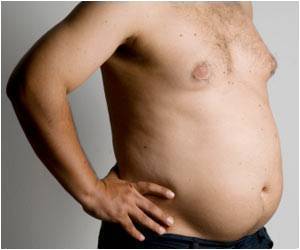Scientists have found that a particular gene is instrumental in enabling the preference in taste among girls who find ice cream and other sugary foods tastier.

Canadian researchers said that there are many reasons why some women are obese. Some of the key reasons are connected to emotional well-being, genetic predisposition, and environmental stress.
Dr. Patricia Silveira, from McGill University, said: "We found that a variation in a gene that regulates the activity dopamine, which regulates the individual's response to tasty food, predicted the amount of 'comfort' foods - highly palatable foods such as ice cream, candy or calorie-laden snacks - selected and eaten by children."
"This effect was especially important for girls who we found carried the genetic allele that decreases dopamine function. Most importantly, the amount of comfort food eaten during the snack test in the four-year olds predicted the body weight of the girls at the age of six. Our research indicates that genetics and emotional well-being combine to drive consumption of foods that promote obesity."
Source-Medindia
 MEDINDIA
MEDINDIA




 Email
Email










